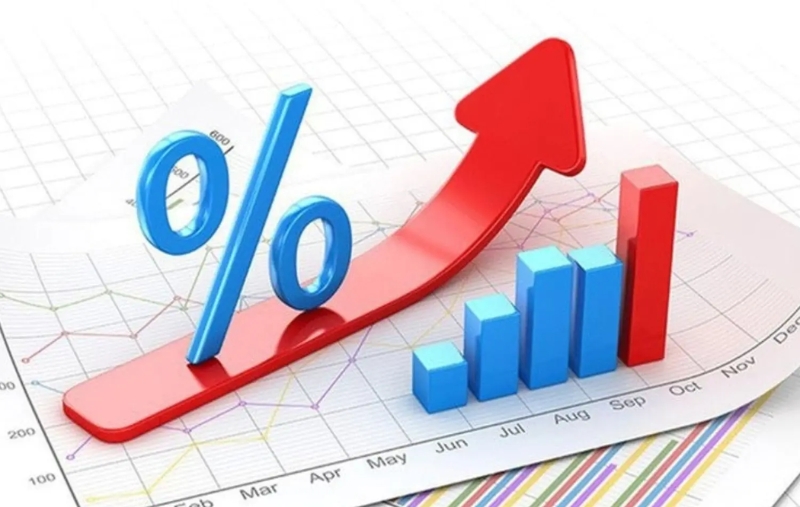What is an ETF? How Exchange Traded Funds Operate and Their Benefits
Corporate
08/05/2025
This comprehensive guide answers the question: What is an ETF? Discover how Exchange Traded Funds operate and their significant advantages for effective and flexible financial investing.
Exchange Traded Funds (ETFs) are gaining increasing popularity among investors, particularly those new to the stock market. But what exactly is an ETF? How do ETFs operate, and what benefits do they offer investors? This VPBank article provides a comprehensive overview of ETFs, covering their fundamental concept, characteristics, and both their advantages and disadvantages as an investment vehicle!
1.What is an ETF?
An Exchange Traded Fund (ETF) is a type of investment fund that is listed and traded directly on a stock exchange. The primary objective of an ETF is to replicate or rebalance specific indices or investment portfolios.
Understanding the Concept of an ETF
While functioning similarly to traditional mutual funds, a key distinction of ETFs is their ability to be bought and sold like individual stocks on a stock exchange. This allows investors to trade them with the same flexibility as equities. Consequently, ETFs facilitate easier access to the market and enable investors to diversify their investment portfolios.
See more: 10 Most Developed Blockchain Applications in Banking
2. How ETFs Operate
An ETF is a unique type of investment fund comprising a diversified portfolio of stocks, bonds, and other assets, professionally managed by a team of experts. A distinctive feature of ETFs is that investors can trade shares of the fund on the stock market, similar to buying and selling conventional stocks.
The value of an ETF is calculated based on its Net Asset Value (NAV), which represents the total value of the assets held within the fund, minus liabilities and associated expenses. The price of ETF shares fluctuates with market conditions and the fund's NAV.
How ETFs Operate
To simplify, consider an ETF as a large pie containing all 30 stocks within the VN30 index, with a total value of USD 100 million. This pie is then divided into 100 equal portions, with each portion representing one fund share. Consequently, the initial investment to own one ETF share would be VND 1 million.
These fund certificates are listed on the stock exchange, allowing investors to buy and sell them like conventional stocks. Therefore, ETFs essentially provide a mechanism for investors to indirectly own the stocks within the VN30 index without needing to commit significant capital to purchase each individual stock.
See more: What is the Policy Interest Rate? Key Information You Need to Know
3. Benefits of Investing in ETFs
Having understood what an ETF is, you can now explore the key benefits of investing in them:
Portfolio Diversification: ETFs cover a wide range of sectors, offering investors diverse selection opportunities and thereby enhancing their potential for returns.
Simplicity, Accessibility, and Reduced Risk: Due to their mechanism of tracking market indices, ETFs free investors from the burden of meticulously analyzing individual stocks. When the market trends upward, investors simply buy, and conversely, they sell when the market declines. This makes ETFs an ideal choice for new investors, particularly young individuals entering the stock market for the first time.
Low Cost: ETFs operate under a passive investment model, primarily tracking market indices. This approach significantly reduces management fees and operational costs, making them a more cost-effective investment option compared to other channels.
High Flexibility: ETFs typically do not require a minimum investment, allowing investors to start with a small capital outlay to familiarize themselves with the market. Furthermore, trading ETF shares is akin to buying and selling conventional stocks; all that is required is a securities account to participate.
Reasons to Invest in ETFs
See more: Detailed Guide to Safe and Profitable Online Savings
4. Who Are ETFs Suitable For?
ETFs represent an ideal investment choice for various investor segments, particularly those seeking portfolio diversification at a reasonable cost and with high flexibility. Specifically, ETFs are suitable for the following profiles:
- New Investors
- Long-Term Investors
- Cost-Conscious Investors
- Investors Seeking Flexibility
- Investors Seeking Diversification
Ideal Investor Profiles for ETFs
5. Popular ETFs in the Market Today
Currently, three popular types of ETFs are favored by investors in the market: Equity ETFs, Bond ETFs, and Sector ETFs. Each type possesses distinct characteristics and properties.
See more: What is a Certificate of Deposit? Differentiating it from Savings Deposits
Equity ETFs
This type of fund replicates the performance of stock market indices, such as VN100, VN30, S&P 500, and other significant benchmarks. Equity ETFs are widely chosen by investors seeking to track and invest in broad stock market indices.
Bond ETFs
Bond ETFs track and replicate the performance of bond indices, including government bonds, corporate bonds, or other interest-bearing debt instruments. They are a suitable choice for investors seeking stability and fixed income from debt securities.
Bond ETF Category
Sector ETFs
These funds replicate market index movements within specific industries or sectors, such as the automotive industry, food, agriculture, seafood, or other commodity-based sectors. Sector ETFs enable investors to gain exposure to and invest in particular industries of interest.
In addition to the aforementioned popular ETF types, other exchange-traded products exist, such as currency ETFs, inverse ETFs, and alternative investment ETFs. However, these are not yet widely prevalent in the Vietnamese market.
6. Key Considerations When Investing in ETFs
While ETFs offer numerous benefits to investors, achieving optimal investment results requires careful consideration of several important factors before participating:
- Although ETFs generally have lower costs compared to actively managed funds, it is crucial to be aware of the transaction fees incurred when buying or selling ETF shares, as well as the fund's management fees. These charges can impact your overall long-term returns, necessitating thorough calculation before investing.
- Liquidity is a critical factor when investing in ETFs. You should examine the trading volume and spread (the difference between bid and ask prices) of the ETF. Low-liquidity funds can make it challenging to buy or sell shares at a reasonable price.
- Each ETF tracks a specific index; therefore, it is essential to have a clear understanding of the index the ETF follows. If this index does not align with your investment objectives or accurately reflect market conditions, it could lead to undesirable risks.
- While ETFs facilitate portfolio diversification, no investment fund is entirely immune to market risks. If the market or the sector in which the ETF invests experiences significant volatility, the fund's value will also be affected. It is advisable to regularly monitor market and sector conditions to make informed decisions.
See more: What is Financial Freedom? Secrets to Achieving Financial Freedom
Key Considerations When Investing in ETFs
You may also be interested in:
-
Which bank offers the lowest interest rates for salary-based unsecured loans in 2025?
-
VPBank Home Loan: Competitive Interest Rates - Fast Approval
The information above provides a fundamental understanding of ETFs and other useful insights. Overall, this investment vehicle offers numerous advantages, from trading flexibility to low costs and portfolio diversification opportunities. Given these benefits, ETFs are a compelling option for your investment strategy. To explore more investment opportunities and financial products, please visit www.vpbank.com.vn or contact our hotline at 1900.54.54.15 for detailed support!
Related Tips & Insights

Corporate
27/05/2025
Is Your Bank QR Code Exposure a Risk? Understanding the Implications and Safeguarding Your Account
Addressing Concerns: Is Bank QR Code Exposure a Problem?

Corporate
08/05/2025
What is the Base Rate? Its Role, Impact, and Standard Calculation Method
This article provides comprehensive information on what the base rate is, its role in the economy, its market impact, and the most accurate method for its calculation.

Corporate
08/05/2025

